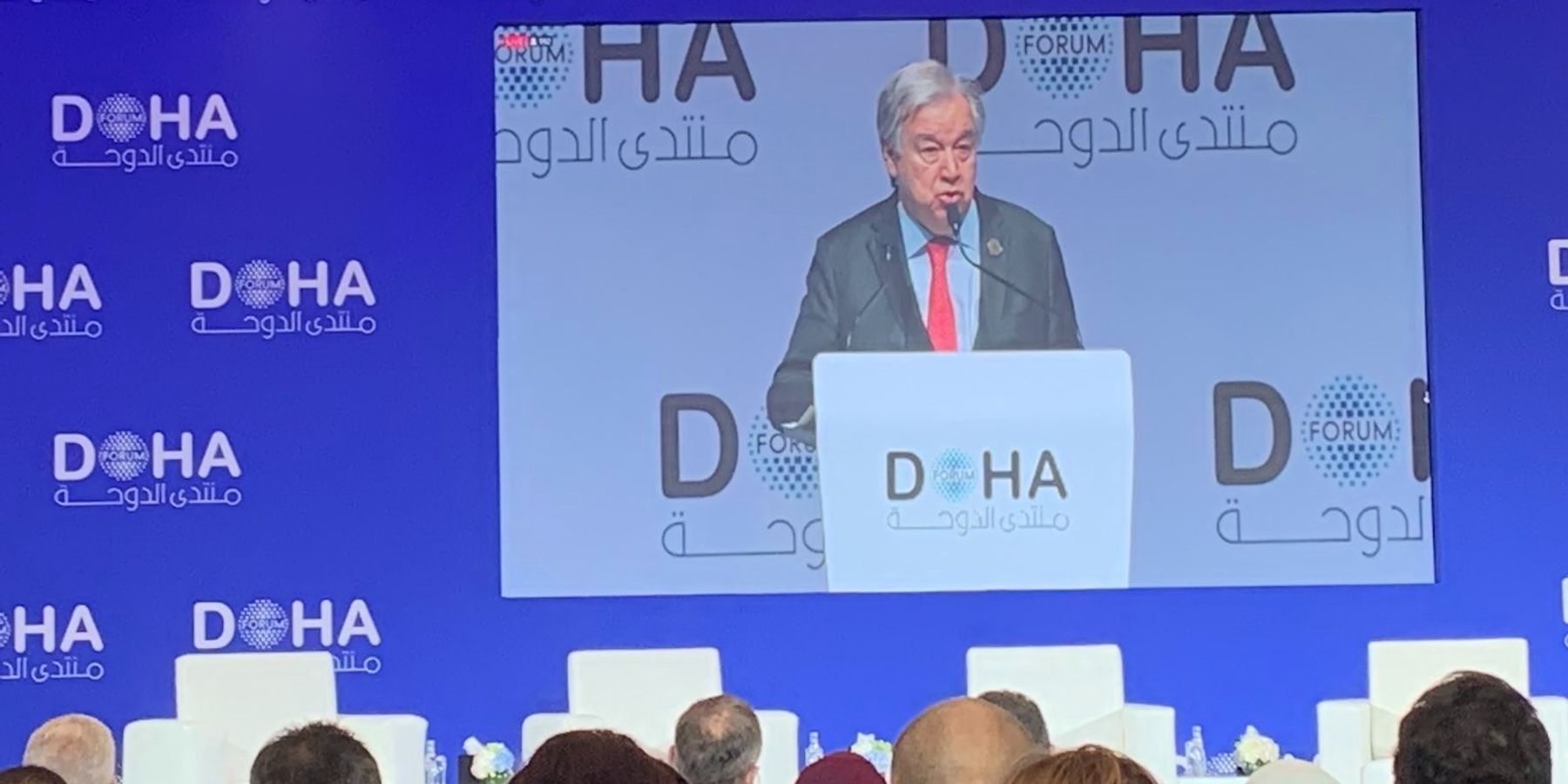DOHA, QATAR — The U.S. veto of the UN Security Council vote for a ceasefire in the war in Gaza is being met with widespread anger and frustration by the international community and especially in the Arab world, as reflected in opening remarks at the 21st Doha Forum in Qatar on Sunday.
Addressing the forum, UN Secretary General Antonio Guterres said the vote was “regrettable…that does not make it less necessary. I can promise that I will not give up.” He said since the Oct. 7 attack by Hamas in Israel and the ensuing Israeli retaliation in Gaza, “the Council’s authority and credibility were seriously undermined” by a succession of failed votes to respond to ongoing civilian carnage on the Strip.
Sheikh Mohammed bin Abdulrahman Al-Thani, foreign minister of Qatar, said the current crisis and the U.S. reaction to it, including its thwarting of the ceasefire call (it was the only vote of disapproval; the UK abstained) was exposing the “great gap between East and West ... and double standards in the international community.” He pointed to those drawing attention to war crimes in “other contexts” (no doubt referring to Russia in Ukraine ) “hesitating to call for the end of these crimes in the Gaza strip.”
He repeatedly called for the creation of new multipolar world order that "respects justice and equality between the people where no people are more powerful than the other."
The U.S. said it did not approve the ceasefire resolution Friday because of the lack of condemnation of Hamas in the language, and that it not include a declaration of Israel’s right to defend itself. U.S. ambassador Robert Wood said halting Israel’s military action would “only plant the seeds for the next war.”
The result is that people here at the forum say they are more convinced than ever that U.S. policy is reflexively and intimately intertwined with Israel's activities in Gaza. As Mohammad Shtayyeh, prime minister of Palestine, charged, Washington has given the “greenest of green lights” to what Israel is doing on the ground. This was exacerbated this weekend with news that the Biden Administration is bypassing Congressional review to send 13,000 tank rounds to Israel. This, despite efforts by Democrats in his own party to condition the transfer of offensive weapons to prevent their use against civilians.
Meanwhile, humanitarian advocates repeatedly called the situation on the ground “unprecedented.” In an interview with Al Jazeera reporter Stefanie Dekker on the dais, Philippe Lazzarini, commissioner-general of the United Nations Relief and Works Agency, said his own organization is “on the brink of collapse.” They have lost 134 relief workers in Gaza since Israeli operations began. He described staff in silent stupefaction over the loss of homes, families. “There is no doubt a ceasefire is needed; we want to put an end to hell on earth right now in Gaza.”
Khaled Saffuri, executive director of the National Interest Foundation in Washington, told RS he was struck by the backlash against American brands in his own travels in Kuwait and Qatar over the last week, citing customer and restaurant boycotts of Coke, Pepsi, MacDonald’s, and Starbucks. “It’s horrible,” he said of the lopsided UN vote. “America is losing a lot in the Muslim world.”
- Truce ends, Israel's assault on Gaza resumes ›
- UN Gaza vote: US isolation in the Global South near total - Responsible Statecraft ›
- Will the human rights movement survive the Gaza war? - Responsible Statecraft ›
- It’s 2024. Is America still indispensable? | Responsible Statecraft ›
- The death of neutrality? | Responsible Statecraft ›
















